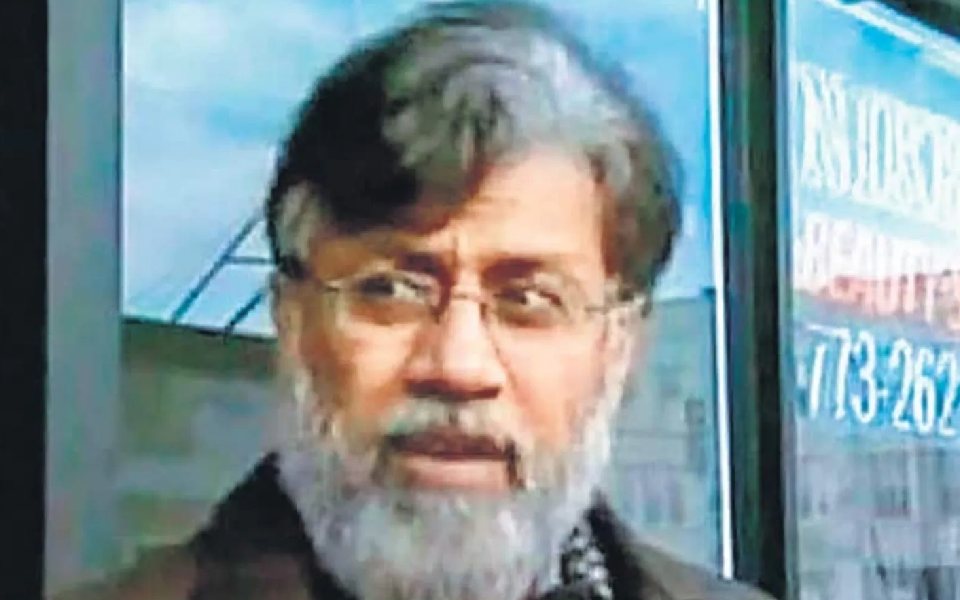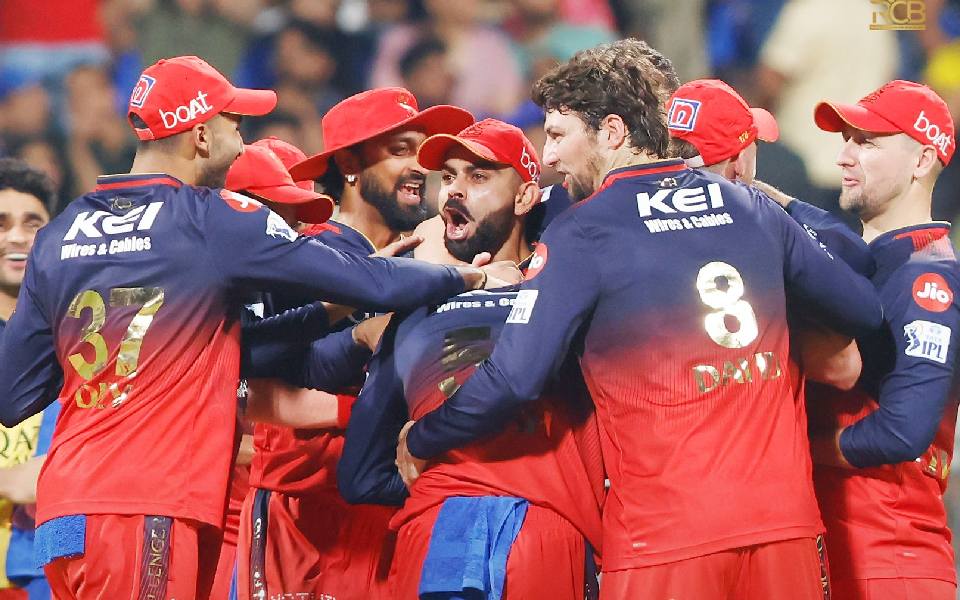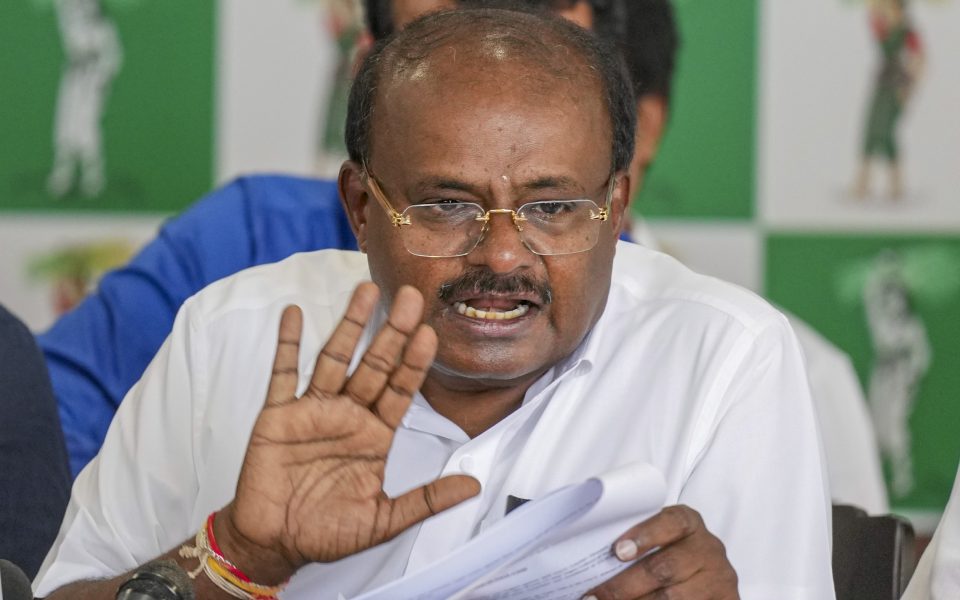New Delhi (PTI): The ruling NDA on Wednesday launched a feisty defence of the Waqf (Amendment) Bill in the Lok Sabha amid the opposition's charge that it was unconstitutional and targeted Muslims, as Home Minister Amit Shah asserted that the government had no intention of interfering in their religious matters and was solely driven by the aim of transparent administration of Waqf properties.
Shah's intervention came during the day-long debate that witnessed a fierce exchange between the two sides, with Congress Deputy Leader Gaurav Gogoi alleging that the bill was an attempt to attack the basic structure of the Constitution, defame minorities, disenfranchise them and divide the society.
Minorities Affairs Minister Kiren Rijiju in his opening remarks rejected the allegation that the proposed law was an interference in the constitutionally guaranteed freedom in religious affairs.
The bill has nothing to do with religion, but deals only with properties, he said tabling the Bill, which was examined and redrafted by a joint committee of Parliament.
"The government is not going to interfere in any religious institution. The changes made in the Waqf law by the UPA government gave it overriding effect over other statutes, hence the new amendments were required," Rijiju said amid noisy opposition protests.
"You (opposition) tried to mislead the people on issues which are not part of the Waqf Bill," she said to the opposition.
Both ministers asserted that the proposed reforms would ensure the welfare of poor Muslims and women.
The BJP was bolstered by a show of support from its key allies like the TDP, JD(U), Shiv Sena and Lok Janshakti Party (Ram Vilas), while the INDIA bloc put up a united show in opposing the bill.
Samajwadi Party chief Akhilesh Yadav claimed that the bill is a BJP's ploy for polarisation following its reverses in the Lok Sabha polls, alleging that it will send a wrong message to the world denting the country's secular image.
The bill will prove to be a "waterloo" for the BJP as some of its allies might be claiming to support the bill but inside they are not happy about the development, he said.
"Bringing Waqf Bill is the BJP's political game, it is a new form of their communal politics. The BJP wants to appease those supporters who are now distancing themselves from the party because of its policies.
After most of the leading opposition leaders had spoken, Shah launched a stout defence of the bill and rejected the most common criticism that the appointment of non-Muslims in the Waqf council and boards violated a community's right to manage its own affairs.
He also warned against instigating Muslims against the law, noting that an opposition MP had said that the minorities will not accept this. "It is the law of the Indian government and Parliament. Everyone will have to accept it."
The bill will become a law after it is notified following its passage in both Lok Sabha and Rajya Sabha.
Shah said the government is not going to have any say in the matters of Waqf, endowments made by Muslims for religiously charitable and pious purposes, adding that the council and boards are aimed at the management of the properties to ensure that they are used in line with the stated aims behind their donation.
He accused the opposition of "fear-mongering" over the bill's provisions, saying this is how they raised a vote bank.
He accused the Congress-led UPA government of effecting many amendments in the Waqf law in 2013 for its appeasement politics, saying these changes made the Act "extreme". Had those changes not been made, the government might not have brought the bill, he added.
He cited a host of instances from across the country about vast properties being claimed by different state Waqf boards, with a section of people involved in their management making personal gains while doing little for the community. The new law will catch such people and throw them out, he added.
"This money is of the poor Muslims not for a few moneybags," he said, citing the meagre income of Rs 163 crore from Waqf properties.
Citing speeches of several opposition leaders, including RJD president Lalu Prasad Yadav, in 2013, he said even they had noted the rampant property grab in the name of Waqf law.
Gogoi argued that the bill had not been adequately discussed with minority representatives.
"In 2023, four meetings of the Minority Commission were held, and yet, there was no mention of the need for a Waqf amendment bill. I ask the government - was this bill drafted by the Minority Affairs Ministry or some other department?"
The opposition MP also raised concerns over Clause 3, which defines individuals practising Islam.
"Minorities are now being forced to prove their religious identity with certificates. Tomorrow, will people from other faiths also have to do this? This is against Article 26 of the Constitution," he said.
BJP's Anurag Thakur said, "This bill is not about Hindu versus Muslim, this is law versus lawlessness, Constitution versus corruption."
Let the Truth be known. If you read VB and like VB, please be a VB Supporter and Help us deliver the Truth to one and all.
New York, Apr 7 (PTI): The US Supreme Court has rejected 26/11 Mumbai terror attack accused Tahawwur Rana's appeal seeking a stay on his extradition to India, moving him closer to being handed over to Indian authorities to face justice.
Rana, 64, a Canadian national of Pakistani origin, is currently lodged at a metropolitan detention centre in Los Angeles.
He is known to be associated with Pakistani-American terrorist David Coleman Headley, one of the main conspirators of the 26/11 attacks. Headley conducted a recce of Mumbai before the attacks by posing as an employee of Rana’s immigration consultancy.
Rana had submitted an ‘Emergency Application For Stay Pending Litigation of Petition For Writ of Habeas Corpus' on February 27, 2025, with Associate Justice of the Supreme Court of the United States and Circuit Justice for the Ninth Circuit Elena Kagan.
Kagan had denied the application earlier last month.
Rana had then renewed his ‘Emergency Application for Stay Pending Litigation of Petition for Writ of Habeas Corpus previously addressed to Justice Kagan’, and requested that the renewed application be directed to US Chief Justice John Roberts.
An order on the Supreme Court website noted that Rana's renewed application had been “distributed for Conference” on April 4 and the “application” has been “referred to the Court.”
A notice on the Supreme Court website Monday said that “Application denied by the Court.”
Rana was convicted in the US of one count of conspiracy to provide material support to the terrorist plot in Denmark and one count of providing material support to Pakistan-based terrorist organisation Lashker-e-Taiba which was responsible for the attacks in Mumbai.
New York-based Indian-American attorney Ravi Batra had told PTI that Rana had made his application to the Supreme Court to prevent extradition, which Justice Kagan denied on March 6. The application was then submitted before Roberts, “who has shared it with the Court to conference so as to harness the entire Court’s view.”
The Supreme Court justices are Associate Justice Clarence Thomas, Associate Justice Samuel A. Alito, Jr., Associate Justice Sonia Sotomayor, Associate Justice Elena Kagan, Associate Justice Neil M. Gorsuch, Associate Justice Brett M. Kavanaugh, Associate Justice Amy Coney Barrett, and Associate Justice Ketanji Brown Jackson.
In his emergency application, Rana had sought a stay of his extradition and surrender to India pending litigation (including exhaustion of all appeals) on the merits of his February 13.
In that petition, Rana argued that his extradition to India violates US law and the UN Convention Against Torture "because there are substantial grounds for believing that, if extradited to India, the petitioner will be in danger of being subjected to torture."
"The likelihood of torture in this case is even higher though as petitioner faces acute risk as a Muslim of Pakistani origin charged in the Mumbai attacks,” the application said.
The application also said that his “severe medical conditions” render extradition to Indian detention facilities a “de facto" death sentence in this case.
The US Supreme Court denied Rana's petition for a writ of certiorari relating to his original habeas petition on January 21. The application notes that on that same day, newly-confirmed Secretary of State Marco Rubio had met with External Affairs Minister S Jaishankar.
When Prime Minister Narendra Modi arrived in Washington on February 12 to meet with Trump, Rana’s counsel received a letter from the Department of State, stating that “on February 11, 2025, the Secretary of State decided to authorise” Rana’s "surrender to India,” pursuant to the “Extradition Treaty between the United States and India”.
Rana’s Counsel requested from the State Department the complete administrative record on which Secretary Rubio based his decision to authorize Rana’s surrender to India.
The Counsel also requested immediate information of any commitment the United States has obtained from India with respect to Rana’s treatment. “The government declined to provide any information in response to these requests,” the application said.
It added that given Rana’s underlying health conditions and the State Department’s findings regarding the treatment of prisoners, it is very likely “Rana will not survive long enough to be tried in India".
During a joint press conference with Prime Minister Modi in the White House in February, President Donald Trump announced that his administration has approved the extradition of "very evil" Rana, wanted by Indian law enforcement agencies for his role in the 26/11 Mumbai terror attacks, "to face justice in India”.
A total of 166 people, including six Americans, were killed in the 2008 Mumbai terror attacks in which 10 Pakistani terrorists laid a more than 60-hour siege, attacking and killing people at iconic and vital locations in Mumbai.

_vb_08.jpeg)



